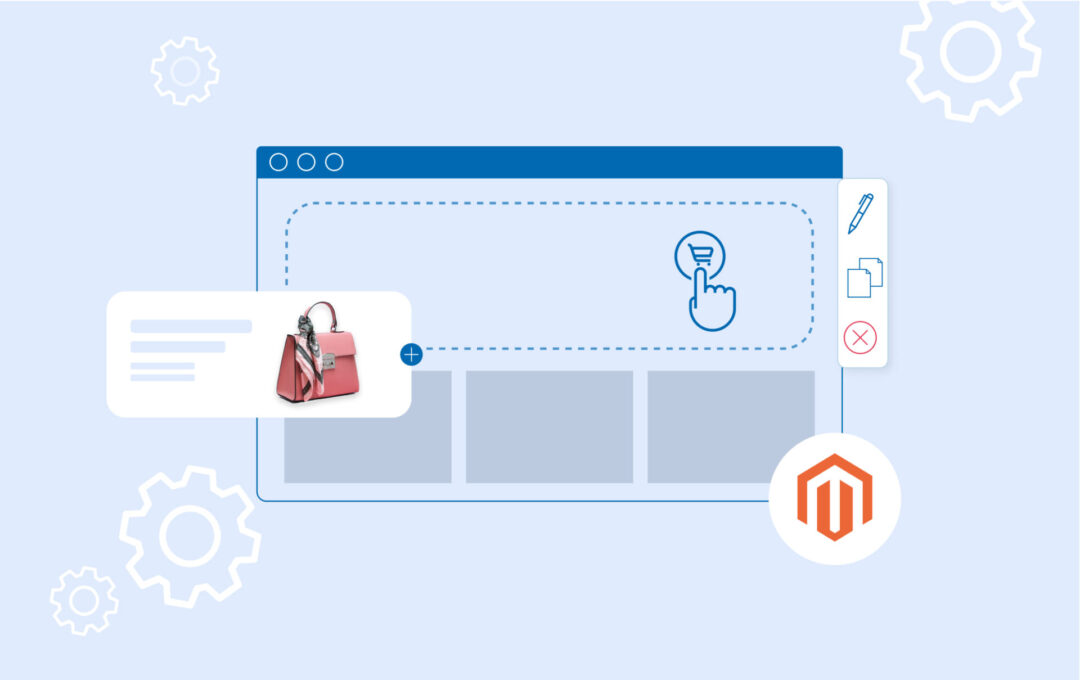Previously, we’ve examined some of the most popular and easy-to-use ecommerce platforms for entrepreneurs wanting to sell online. We’ve highlighted how quick and easy it is to get up and running with Shopify, the customisation freedom that WooCommerce offers and how Ecwid streamlines social commerce, the act of selling on social media platforms like Facebook and Instagram. However, there’s another popular open-source ecommerce platform trusted by several big brands from around the world: Magento.
Other than being enablers of ecommerce, another thing that both Payfast and Magento have in common is that we were both founded in 2007. While Jonathan Smit was developing Payfast in South Africa, Magento was being developed on the other side of the world in California, USA by Varien Inc.
What is Magento?
Magento boasts several key features that make it a preferred choice for ecommerce businesses. Firstly, it offers flexibility and scalability, allowing businesses to customise and expand their online stores as per their specific requirements. Additionally, Magento provides advanced SEO capabilities, ensuring that your website is optimised for search engines and ranks well in search results. Its mobile responsiveness ensures a seamless user experience across different devices. Moreover, Magento offers robust catalogue management and multi-store functionality, enabling businesses to efficiently handle large product inventories and operate multiple online stores simultaneously.
What are the benefits of Magento ecommerce?
Magento presents a diverse array of tools and features to assist businesses in crafting their ideal online store. Beyond the convenience of effortlessly updating content and inventory, there are several standout advantages worth mentioning:
Customisability and personalisation
Magento provides businesses with a high level of flexibility and customisation, enabling them to align their online stores with their distinct brand identity. It provides extensive options for custom design, layout and functionality, ensuring a personalised shopping experience for customers.
Enhanced UX
Magento prioritises user experience by offering features like intuitive navigation, fast page loading times and smooth checkout processes. It provides a responsive design, ensuring a seamless shopping experience across different devices, including mobile phones and tablets.
SEO optimisation
Magento is designed with search engine optimisation (SEO) in mind. It offers built-in features that help improve your website’s visibility in search engine results. These features include search engine-friendly URLs, meta tags, sitemaps and the ability to customise and optimise product pages for better search rankings.
Efficient inventory management
Magento provides robust catalogue management capabilities, allowing businesses to efficiently manage and organise their product inventory. It supports batch updates, configurable products and various pricing options, making it easier to handle a large number of products and streamline inventory management processes.
Third-party integrations
Magento offers seamless integration with a wide range of third-party tools and services, including payment gateways, shipping providers, email marketing services and analytics tools. This allows businesses to leverage additional functionalities and services to enhance their online store’s performance and customer experience.
Scalability
Magento is highly scalable and can accommodate the growth of your ecommerce business. Whether you have a small online store or a large enterprise, Magento can handle high levels of traffic, orders and product catalogues without compromising performance.
Community and support
Magento has a vast and active community of developers, designers and users who provide support, share resources and contribute to the platform’s continuous improvement. This community-driven support system ensures that businesses can find help, guidance and resources to address any challenges they may encounter.
What’s the difference between Magento Open Source and Adobe Commerce (previously Magento Commerce)?
Magento has two products: Magento Open Source, which is their free-to-download solution, and Adobe Commerce, an all-encompassing ecommerce packaged solution, which was previously known as Magento Commerce.
While Magento Open Source is indeed free to use, it’s crucial to consider the limitations of its features. In addition, there are expenses to consider, including hosting, development, design and security costs. On the other hand, Adobe Commerce is an ecommerce solution specifically designed for larger enterprise-level businesses or medium-sized businesses aiming to expand. This is primarily because the platform entails certain costs, which we will delve into in the following section.
What is Magento’s pricing?
Magento offers different pricing options based on the edition you choose:
Magento Open Source (formerly Community Edition)
This edition is free to download and use. It provides basic ecommerce functionality and is suitable for small to medium-sized businesses with limited budgets. However, it’s important to note that while the software is free, you will still incur costs for hosting, development and any additional extensions or themes you may need.
Magento Commerce (formerly Enterprise Edition)
Magento Commerce is the paid edition of Magento and offers more advanced features and support. The pricing for Magento Commerce is not publicly available and may vary based on factors such as your business size, revenue and specific requirements. It is a comprehensive solution suitable for larger enterprises and businesses with more complex needs. Magento Commerce provides additional features like advanced marketing tools, customer segmentation, B2B functionality and cloud hosting options.
How do you integrate Magento with Payfast to accept payments?
Once you have signed up and verified your Payfast account you can integrate the online payment gateway with your Magento ecommerce store to accept a variety of popular payment methods. For instructions on how to integrate Magento and Payfast, read this ‘How do I integrate Payfast with Magento?’ knowledge base article which explains everything you need to do, including the installation requirements, installation steps and how to test that the integration is working correctly.
While Magento has its perks in its scalability and powerful features, it’s not a realistic solution for small businesses that don’t have the money or capacity to start, run and manage their online store.
As with choosing any ecommerce solution, it’s important to do your research to understand your specific needs and to determine how much you can afford to invest in your ecommerce website. If you feel like your business can realistically scale and manage high volumes, then Magento may be the right solution for your business. In which case, visit the Magento website for information on how you can start using their platform to sell online.
Things to Consider Before Choosing Magento
While Magento offers numerous advantages, there are a few considerations to keep in mind before making a decision. Firstly, implementing and maintaining a Magento store may involve certain costs, including licensing fees, hosting expenses and development costs for customisation. Additionally, technical expertise is required to set up and manage a Magento store effectively. The learning curve associated with Magento can be steep for those unfamiliar with the platform. Therefore, it is essential to assess the availability of resources and budget allocation before opting for Magento.
Considerations When Choosing an ecommerce Platform
When choosing an ecommerce platform, consider the following factors:
Budget and cost implications
Assess the initial setup costs, transaction fees, hosting fees and ongoing maintenance expenses associated with each platform.
Technical expertise required
Determine the level of technical knowledge needed to set up, customise and manage your online store effectively.
Support and community
Evaluate the available support options, documentation and active community forums for each platform.
Magento offers businesses the benefits of customisability, enhanced user experience, SEO optimisation, efficient inventory management, seamless integration with third-party tools, scalability and a supportive community. These features make Magento a popular choice for businesses looking to establish a powerful and successful ecommerce presence.




